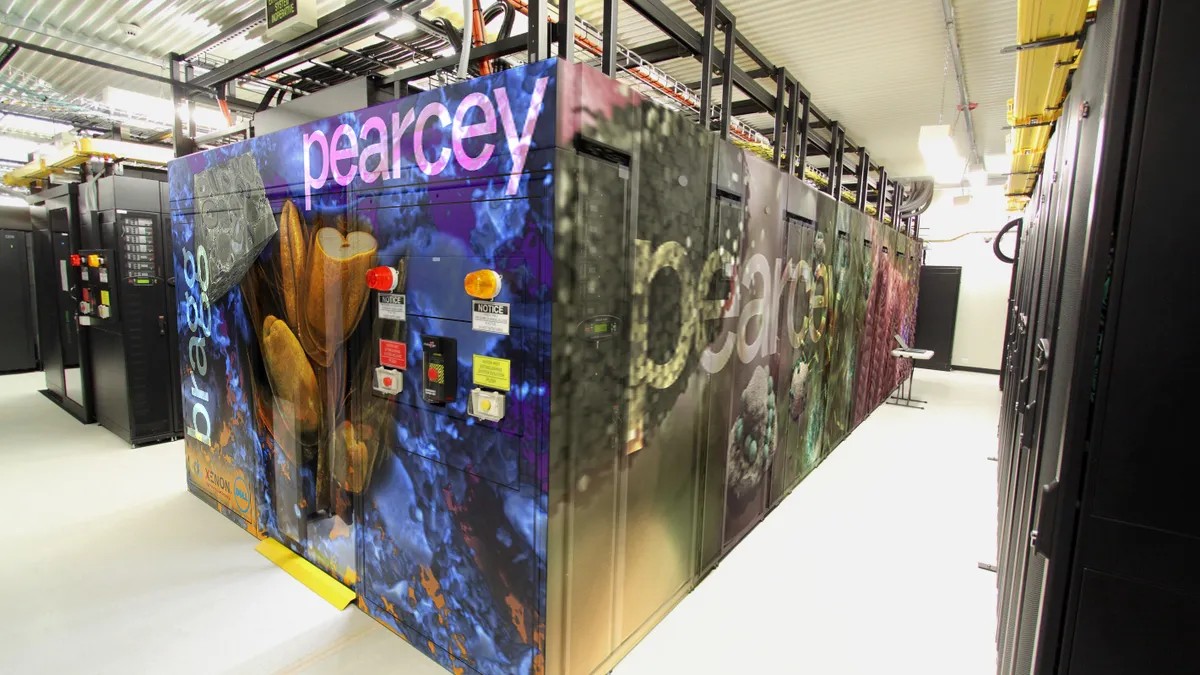Pearcey Cluster At CSIRO Welcomed
The CSIRO has teamed up with Dell to deliver a new HPC cluster called "Pearcey" to support research activities in a broad range of areas such as Bioinformatics, Fluid Dynamics and Materials Science.
"We welcome the naming of the new HPC cluster after Australian ICT pioneer Dr Trevor Pearcey," said Wayne Fitzsimmons, Chairman of the Pearcey Foundation
"We established the Foundation in 1998 in recognition of the work of Dr Pearcey in leading the CSIRO project team that built one of the world's first digital computers, CSIRAC, which still exists intact and is on display at Museum Victoria, making it the oldest surviving electronic computer in the world. It's great to see the latest in HPC at CSRIO continuing his legacy."
Dell Boost to High Performance Computing
Pearcey is a Dell HPC system designed by CSIRO and Dell that delivers 230 nodes supporting data- intensive research and computational modeling. Below are its key features:
- Based on Dell PowerEdge M630 blade servers, each with 128GB RAM, and four PowerEdge R930 nodes each with 3 TB of memory for large memory applications.
- Servers are connected via 1:1 Mellanox FDR InfiniBand Networking.
- Built with Bright Cluster Manager, enabling a software defined approach to management.
- Sixteen of the PowerEdge M630 blade servers are configured with 512GB RAM and use ScaleMP software connected architecture to create a single, high memory, 8 TB cluster under a single operating system.
The manager for Dell APJ HPC, Andrew Underwood, said "It's vitally important we work closely with our customers to make sure we architect the right solution for their needs, and Pearcey is the result of more than three years of close collaboration with CSIRO's Information Management and Technology team to clarify their objectives, and consolidate their infrastructure."
"High performance computing facilities such as Pearcey are an integral part of the advanced information and communications technologies that enable CSIRO science to solve real issues." said Angus Macoustra, executive manager of Scientific Computing at CSIRO. "Pearcey joins our portfolio of scientific computing facilities - these world class computing and storage services are essential to the delivery of CSIRO's research portfolio and allow us to accelerate research impact and delivery to CSIRO's customers compared to past systems."
CSIRO Uses Dell Supercomputer to Help Combat Post-Childbirth Complications in Women
SOne CSIRO researcher benefiting from using Pearcey is Dr. Dayalan Gunasegaram, a CSIRO computational modeler who is using Pearcey for the modelling work behind the development of an improved nylon mesh for use in pelvic organ prolapse (POP) surgery, which has the potential to benefit the one in five Australian women that have surgery for the condition at some point in their lives.
"Current mesh implants that haven't been well designed for this purpose can lead to pain and discomfort, so we've teamed up with researchers from Monash University to develop an improved mesh for supporting prolapsed organs and treating the condition more effectively," Dr. Gunasegaram said.
"Using the high performance computing capability of the Pearcey cluster we can simulate the stressful forces a patient would experience, such as during coughing or running, and model a variety of different situations to assess the mesh under stress."
The new leading-edge computing hardware has helped to accelerate the research which would have taken longer without the specialized Pearcey cluster.
"With thousands of processor cores available, Pearcey allows us to do more finite element analysis computations within a given time, which means we're able to advance to the next stage of testing much sooner than if we didn't have something so powerful.
"The computer simulations allow us to better understand the cause-and-effect relationships between mesh parameters, such as pore size and their expected in-vivo performance after implantation, and really focus on the areas with the most influence.
"By focusing on these areas, we're able to reduce the amount of physical testing we need to carry out on animals and humans, and the associated ethical and financial costs," Dr. Gunasegaram continued.

